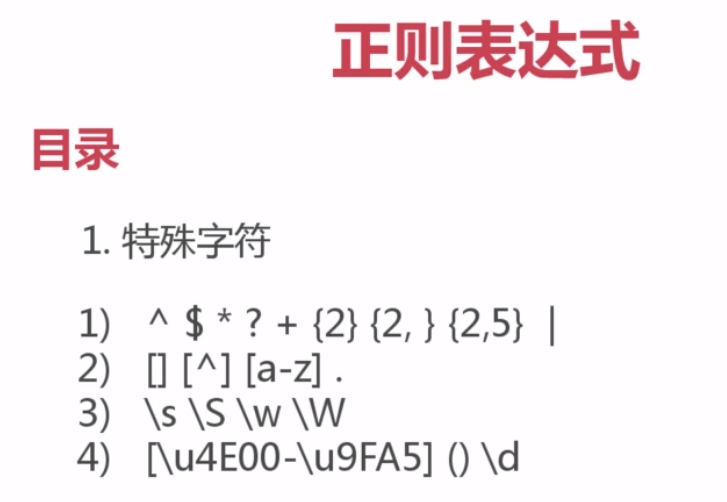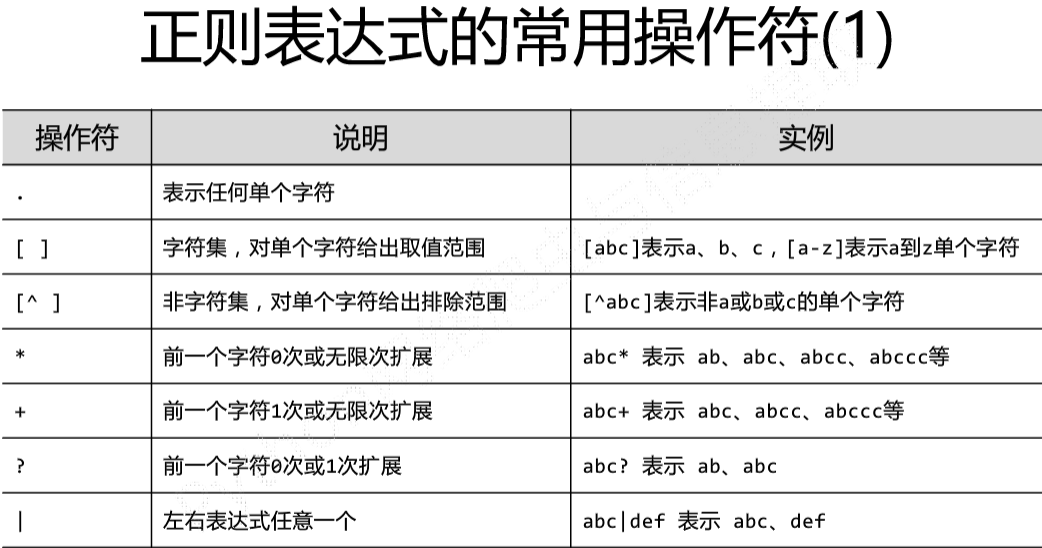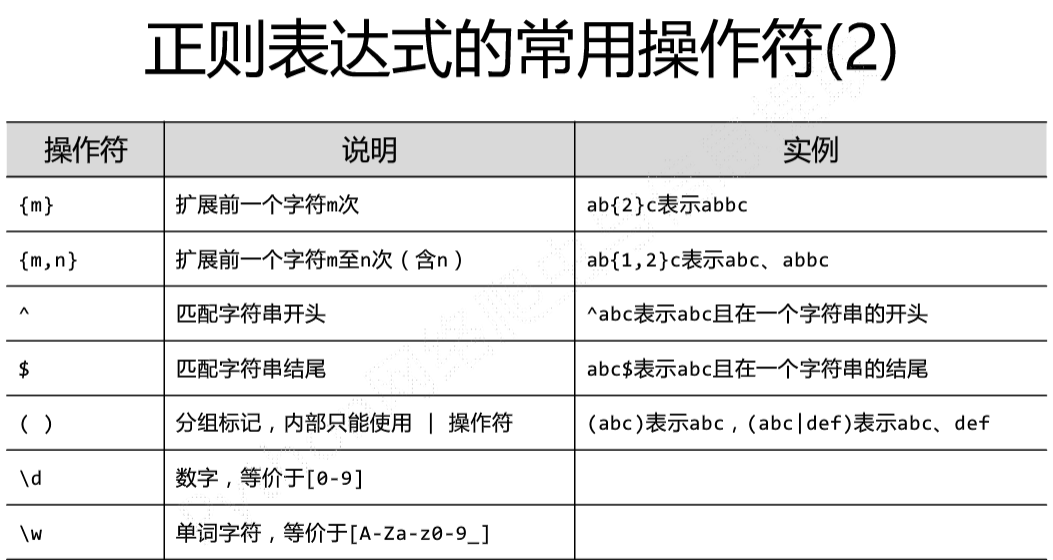1.特殊字符



1.非贪婪模式:
import re line="booooooooobby123" regex_str=".*?(b.*?b).*" match_obj=re.match(regex_str,line) if match_obj: print(match_obj.group(1))
2.[]的三种用法
1)[abcd]ooby123--任何一个
2)[0-9]--区间
3)[^1]--非
中括号里面的字符不再有特殊意义
import re line="18sssssss22" regex_str="(1[48357][^1]{9})" match_obj=re.match(regex_str,line) if match_obj: print(match_obj.group(1))
3.s S w W
s---空格(单个字符)
S----非空格(单个字符)
w---[a-zA-Z0-9 _]
W---非w即可
4.实例
import re #line="XXX出生于2001年6月1日" # line="XXX出生于2001/6/1" #line="XXX出生于2001-6-1" #line="XXX出生于2001-06-01" line="XXX出生于2001-06" regex_str=".*出生于(d{4}[年/-]d{1,2}([月/-]d{1,2}|[月/-]$|$))" match_obj=re.match(regex_str,line) if match_obj: print(match_obj.group(1))